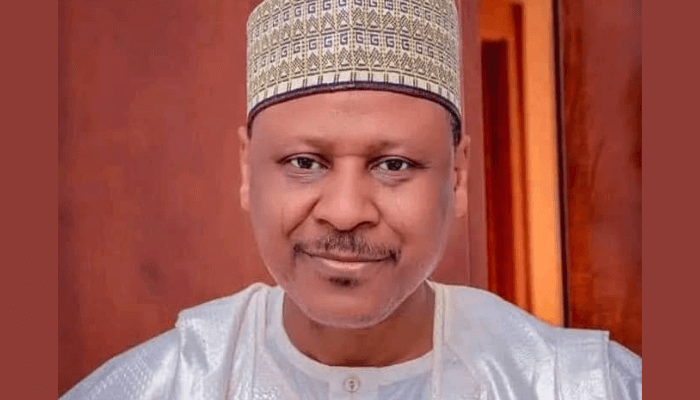Listen to the article
Nigeria Approved to Host World’s First UNESCO Media Literacy Institute
Mohammed Idris, Nigeria’s Minister of Information and National Orientation, announced Wednesday that Nigeria has secured approval to host UNESCO’s first Category-2 International Media and Information Literacy Institute. The designation was formally granted during the 43rd General Conference of the Communication and Information Commission held in Samarkand, Uzbekistan.
This landmark achievement positions Nigeria at the forefront of global efforts to combat misinformation and disinformation. The Abuja-based institute will serve as an international hub for research, policy development, and capacity-building initiatives in the increasingly critical field of digital literacy.
“This approval is a strong vote of confidence in our nation,” Idris told attendees at the UNESCO conference. He emphasized that the institute will function as an international observatory to help individuals and communities worldwide navigate the complexities of the digital information landscape with greater discernment and critical thinking skills.
The minister highlighted that the initiative aligns with President Bola Ahmed Tinubu’s administration priorities, stating, “The Nigerian government is committed to fostering a society where responsible free speech supports national progress. A central pillar of our strategy is the democratization of digital opportunities, with media and information literacy as the key driver.”
The journey to secure this prestigious designation began in October 2022 when Nigeria hosted the 10th Global Media and Information Literacy Conference in Abuja. During that event, Nigeria pledged to establish the UNESCO-affiliated institute, a commitment that has now come to fruition under Tinubu’s Renewed Hope Agenda.
“I want to congratulate President Bola Ahmed Tinubu on this achievement, which reflects his commitment to the Nigerian project,” Idris said. “This is a significant achievement not only for Nigerians but for Africa as a whole.”
The timing of this development is particularly significant as nations worldwide grapple with the proliferation of false information across digital platforms. The institute’s establishment comes amid growing global concern about the impact of misinformation on democratic processes, public health initiatives, and social cohesion.
Media literacy experts have long advocated for institutional approaches to addressing digital misinformation. UNESCO’s decision to establish its first Category-2 institute of this kind in Nigeria acknowledges both the country’s leadership potential in this domain and the urgent need for coordinated international responses to information disorder.
The Nigerian government has pledged to continue collaborating closely with UNESCO to meet the infrastructure requirements for the institute and strengthen its governance framework. This will include assembling a multidisciplinary team of experts to fulfill the institute’s global mandate.
A formal launch ceremony for the institute is scheduled for February 2026 in Abuja. The event is expected to draw UNESCO officials, representatives from member states, and strategic partners from around the world.
The Nigerian delegation at the UNESCO conference included several high-ranking officials: Senator Kenneth Eze, Chairman of the Senate Committee on Information and National Orientation; Honorable Olusola Fatoba from the House Committee on Information, National Ethics, and Values; Dr. Mohammed Bulama, Director General of the Federal Radio Corporation of Nigeria; and Malam Abdulhamid Salihu Dembos, Director General of the Nigerian Television Authority.
Also present were Dr. Olalekan Fadolapo, Director General of the Advertising Regulatory Council of Nigeria; Malam Jibrin Baba Ndace, Director General of the Voice of Nigeria; and Dr. Hajo San, Nigeria’s Ambassador to UNESCO.
This achievement represents a significant diplomatic and strategic victory for Nigeria on the international stage, potentially enhancing the country’s soft power and influence in global discussions about media literacy, digital rights, and information governance frameworks.
Fact Checker
Verify the accuracy of this article using The Disinformation Commission analysis and real-time sources.




9 Comments
Nigeria taking a leadership role in this area is commendable. Combating misinformation requires coordinated global efforts, so I’m glad to see UNESCO backing this initiative. I hope the new institute can develop effective, scalable solutions that can be adopted elsewhere.
Absolutely. Media and information literacy training will empower people to think critically about online content and make more informed decisions.
Nigeria hosting a UNESCO media literacy institute is a big responsibility. I’m curious to see how they plan to collaborate with other countries and leverage global best practices to develop an effective, scalable model that can be replicated elsewhere.
This is an interesting development in the fight against misinformation. Nigeria hosting a UNESCO institute focused on media literacy could have a significant global impact. I’m curious to learn more about their specific plans and how they intend to collaborate with other countries.
Agreed, this is an important step. Building digital literacy skills worldwide is crucial in the age of online information overload and manipulation.
While it’s positive that Nigeria is taking on this challenge, I wonder about the institute’s long-term sustainability and impact. Ensuring proper funding, resources, and international cooperation will be crucial for it to succeed.
That’s a fair point. Building a truly global and impactful media literacy program will require substantial, ongoing investment and coordination between countries and organizations.
This is an important step, but the fight against misinformation is a daunting one. I hope the new institute in Nigeria can make meaningful progress, especially in reaching marginalized communities that are most vulnerable to the harms of fake news.
Agreed, targeting underserved populations should be a key priority. Building critical digital skills across all demographics is essential for creating a more informed, resilient society.